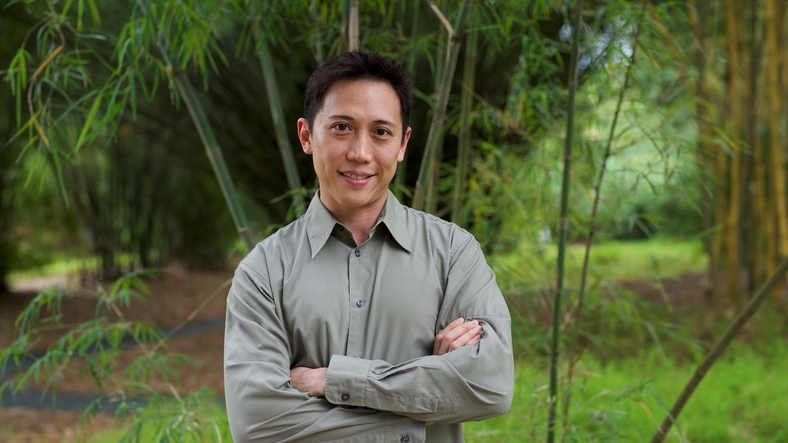
A new and improved Core Curriculum begins in Academic Year 2019-2020. Professor Elvin Lim , Dean of the Office of Core Curriculum, explains the impetus behind the changes.
To help its graduates nimbly navigate an increasingly VUCA (Volatility, Uncertainty, Complexity and Ambiguity) world, Singapore Management University is making some big changes to its Core Curriculum.
Beginning in April 2017, SMU’s Blue Ribbon Commission for Undergraduate Education (BRC) spent over a year going through the previous undergraduate curriculum to understand students’ evolving needs, seeking feedback from stakeholders and examining current university practices, initiatives and policies.
Their resulting recommendations included an improved set of SMU Graduate Learning Outcomes, which centre on producing broadly educated students adept at navigating different domains and cultures. The resulting agility and versatility will be key for thriving in a fast-changing world.
“At the Office of Core Curriculum, we believe that students must not only be professionalised to perform well in anticipated situations and environments,” says Professor Lim. “They should simultaneously be unconditioned from familiar trains of thought and routinised modes of reaction so that they are able to react creatively and without the heuristics of previous conditioning in the face of contingency.”
New structure and content
Here are the key academic changes to the Core Curriculum:
MORE COMPACT & AGILE: Instead of the previous 16 Course Units (CU), the new Core Curriculum now comprises 12 CU. The result: a more streamlined, forward-looking and relevant Core Curriculum operating via courses in three inter-related learning paths, namely: Capabilities, Communities, and Civilizations to deliver a common SMU intellectual experience so as to inculcate multidisciplinary knowledge, inter-cultural understanding and sensitivity.
MOULDING THE NEXT GENERATION TO THRIVE AND EXCEL: To future-proof our graduates, the new Core Curriculum adopts an experiential, integrative and interactive learning approach that is broad-based and multi-modal. It is by encouraging diversity in their learning journey, either through knowledge or exposure, that students can develop competencies and values needed for the 21st century.
ENCOURAGING INTERDISCIPLINARY LEARNING: To nurture well-rounded graduates, the curriculum offers module options that emphasise integrative learning, critical thinking and creative problem skills. Cross-disciplinary teaching on common topics is applied for the compulsory bundle of freshmen courses comprising of Economic and Society, Big Questions and Writing and Reasoning. This vein of encouraging interdisciplinary learning is carried throughout the student’s life cycle at SMU through a series of public lectures and conferences. To this end, the Office of Core Curriculum had launched the inaugural Big Questions Conference: Happiness and Suffering and also conducted talks by Steve Hickman on Mindfulness & Compassion in the New Millennium: How Ancient Practices Can Meet Modern Challenges, Sonu Bedi on Private Injustice: Enlarging the Boundary of Justice and Michael Norton on Happy Money: The Science of Happier Spending which formed part of the freshmen’s Big Questions course.
Learning from workplace experience
Another key change: Internships and Community Service modules, which used to be non-credit-bearing graduation requirements, are now part of the Core Curriculum. Says Professor Lim: “SMU has taken a 360-degree assessment of what a well-rounded graduate for the 21st century should look like. In doing so, we strengthen our commitment to producing a generation of entrepreneurs, professionals, citizens and leaders who will bring meaningful impact to those whose lives they touch.”
As part of the Core Curriculum, students now have a work-study option where they can choose to undergo internships for up to six months. It now includes a reflection component, where students will complete regular reflection reports before, during and after their internships.
To promote self-directed, iterative and personalised learning, there will be a new, downsized suite of Finishing Touch (FT) workshops administered by the Dato’ Kho Hui Meng Career Centre (DKHMCC). Comprising of five mandatory workshops and four supplementary elective workshops for all undergraduate students based on industry needs, it aims to provide depth, practice, choice and some specialisation with students’ career readiness needs in mind.
The internship and career coaching processes was also enhanced, such as including a student-initiated performance report discussion with their internship supervisor during the appraisal process. These aims to help students improve their personal development and learning outcomes, as well as ensuring equal learning opportunities across the different internship programmes.
Serving the community
The Community Service programme has also been improved.
- There is now a clear incorporation of Service Learning knowledge, so students can learn to conduct critical needs analysis and asset mapping.
- Three new online workshops emphasise the value of service learning, self and social responsibility.
- Similar to the Internship programme, an improved reflection process requires students to complete reflection reports before, during and after their service.
- The post-service appraisal will now provide more information about students’ learning process and outcomes, rather than focusing only on administrative and operational details.
- The biggest change is allowing NSmen and pre-enrolment students who have matriculated early to start their Community Service projects before commencing their undergraduate studies. The BRC views this as an ideal opportunity for students to start building bonds with their fellow students and strengthening their sense of affinity with the university.
Nurturing a new generation of leaders
Professor Lim believes these new changes will “develop the social intelligence and ethical compass of our students, and propel our graduates to apply their technical skills and disciplinary knowledge in the workforce and in communities”.
Regardless of their chosen discipline, he hopes that every SMU graduate will become competent, adaptable, and responsible decision-makers who can apply themselves to anything, anywhere, for the good of all and help them to excel in the workplace and deliver meaningful impact both locally and globally.



